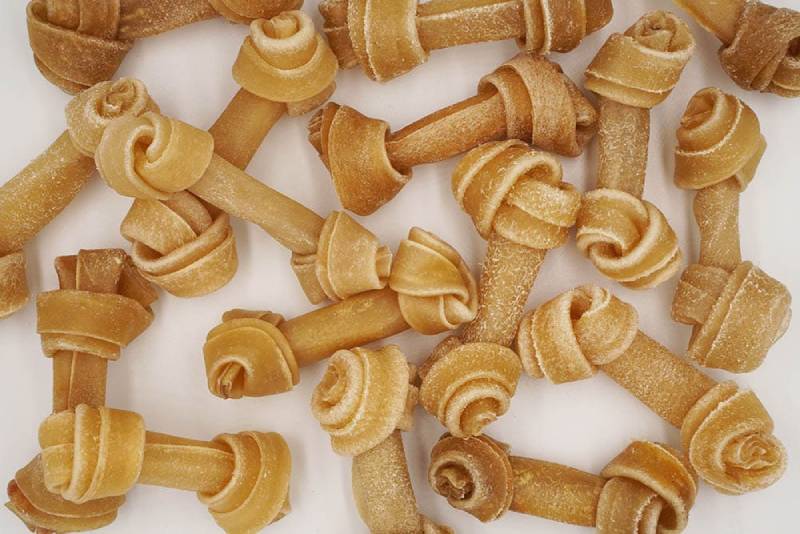Why Do Dogs Lick Their Wounds? 4 Reasons & When to Stop It

Updated on
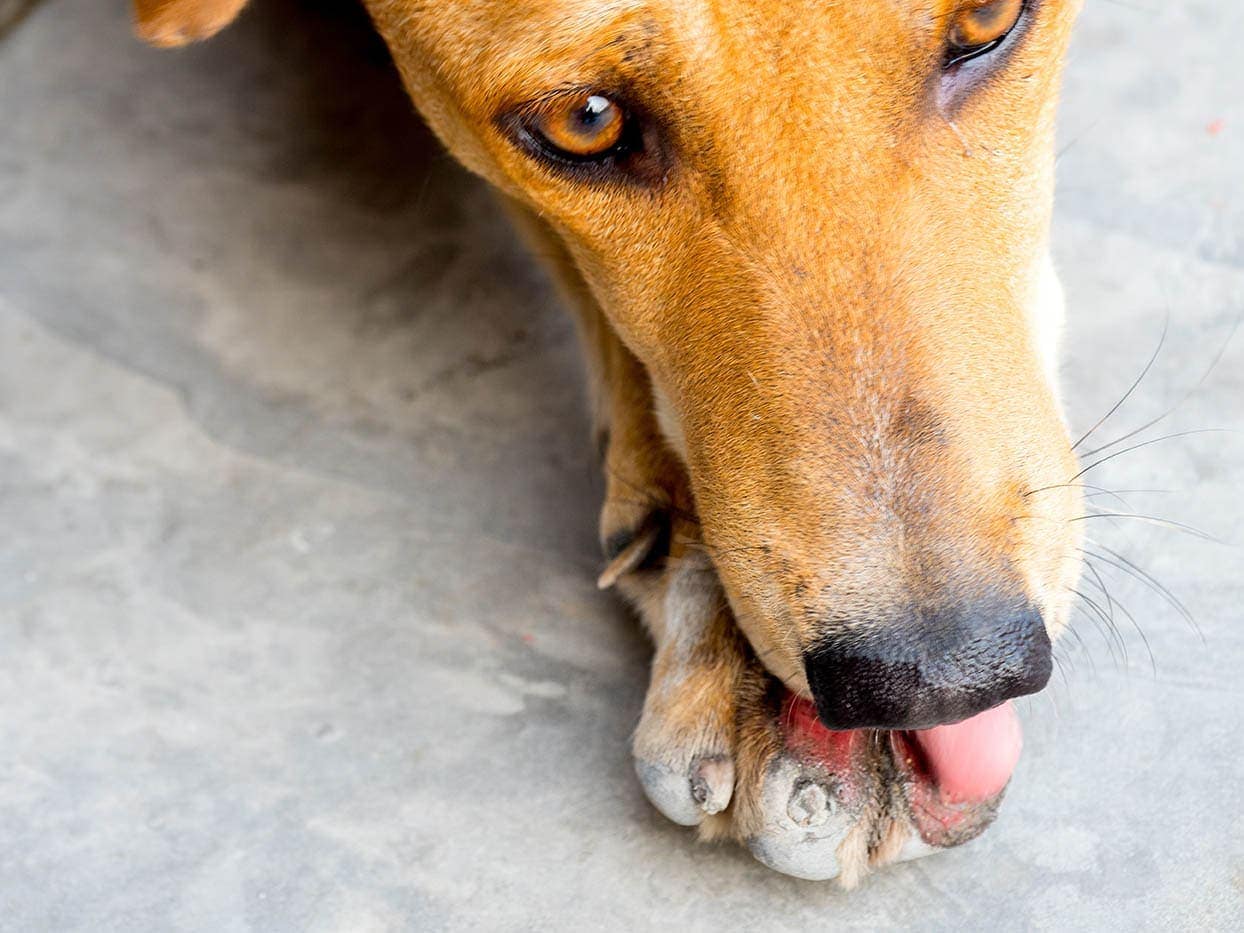
If you have a pet dog, you’ve likely seen him lick his own wounds and maybe even yours. It’s even likely that you’ve watched your dog repeatedly lick one area or spot on his body for an extended period of time before you realized he was actually licking a wound.
Whether it was a cut, bite, or puncture wound, your dog was licking that wound seemingly obsessively for a reason. Here are four of the most common reasons your dog licks his own wounds and yours.
The 4 Reasons Why Dogs Lick Their Wounds
1. Licking is Instinctual
Anyone familiar with dogs knows that they all have their own personalities. Despite each dog being unique, there are some traits and behaviors they all have in common. Some traits seen in dogs come from years’ worth of instincts, long before dogs were domesticated to become a part of our families. After tens of thousands of years, your four-legged canine friend cannot shake the wild instincts ingrained in him.
Licking is a common dog behavior stemming from wild instincts. In other words, it’s natural for a dog to lick his wounds and even yours. Dogs, like people, have instinctual behaviors designed to help them survive. When your dog licks a wound, he’s doing it out of instinct to clean the wound to help it heal. A dog instinctively knows that an unattended wound can lead to extreme illness, weakness, vulnerability, and even death.
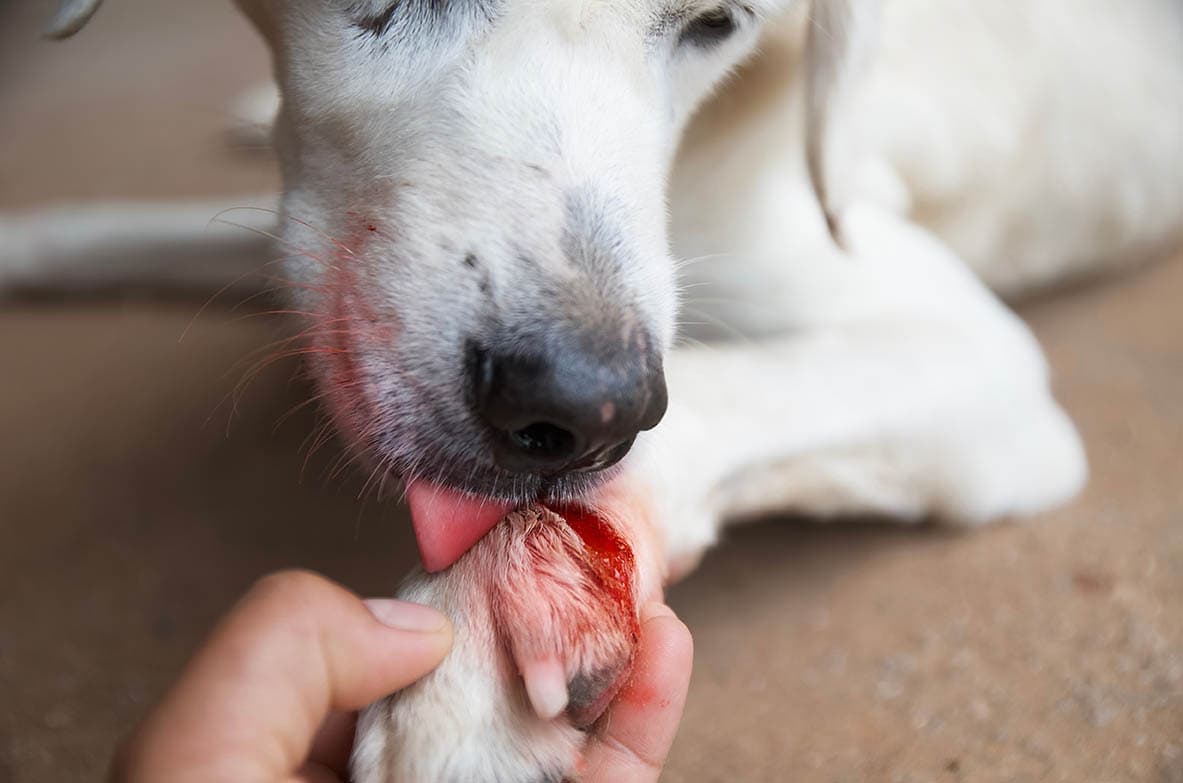
2. A Dog’s Mouth is His Only Tool
Unlike us humans who have two hands to attend to our injuries and wounds, the only tool a dog has is its mouth. When you stop and think about it, your dog uses his mouth for many important functions including barking, chewing food, showing affection, grooming, and cleaning wounds.
3. Licking is a Soothing Behavior
One reason a dog licks their wound is that it’s soothing. By licking its wounds, a dog can calm himself down, alleviate stress & anxiety, and lower pain by removing irritating and possibly infection-causing debris.
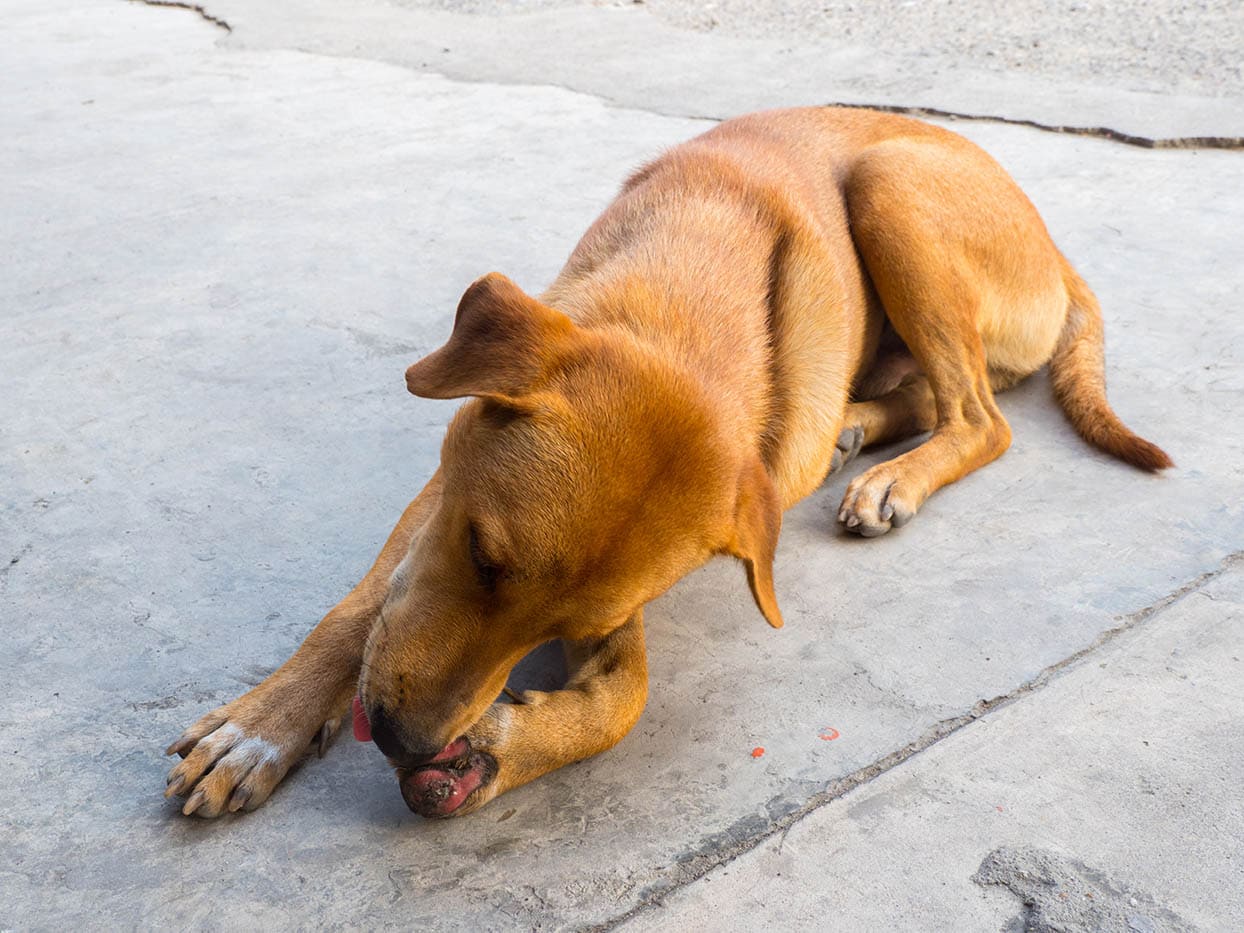
4. To Heal Wounds & Remove Debris
Dog saliva is antibacterial and works as a cleansing agent to promote the healing of superficial wounds. There are also enzymes in dog saliva that work to break down the cell wall of bacteria that causes infection. When your dog licks his wound, it also can remove dirt, debris, and dead skin that may be inhibiting the healing process. The licking can also deliver antiviral compounds to the wound for better and faster healing.
What to Do If Your Dog Licks Their Own Wounds Excessively
While moderate licking of a wound can help clear away debris and promote healing, too much licking can be detrimental. You’ll know if your dog has been excessively licking if a closed wound reopens or if the fur begins to thin in the area. A lick granuloma is a skin problem that starts small but becomes a big issue with over-licking.
There are a few things you can do to prevent your dog from licking his wounds too much. These methods range from distractions to using behavior modification, to putting a special collar on your dog.
1. Use a Special Collar
You’ve probably seen those big round plastic Elizabethan collars on dogs. They’re often too big and have to be adjusted and modified. Often referred to as the “cone of shame” these cone-shaped collars are designed to prevent dogs from licking wounds.
If your dog won’t tolerate wearing a plastic collar, look for a less bulky one that’s made of a soft foam material. You can also find inflatable donut-style collars. Regardless of what type you choose, it’s important that it fits properly and prevents your dog from reaching the wound with his tongue.
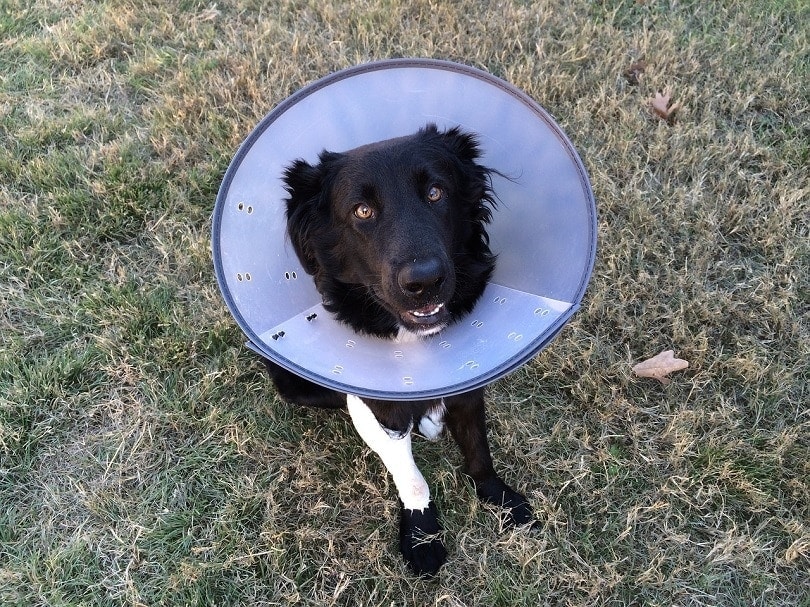
2. Apply a Bandage to Their Wound
You can apply a bandage to your dog’s wound to prevent over-licking. While a bandage is a great lick-deterrent, many dogs won’t tolerate wearing them. The only way to find out if your dog will put up with having a bandage on his wound is to try. If he lets the bandage be, then great! If he starts chewing the bandage, discourage the chewing or try another method.
3. Keep Your Dog Distracted
Another way to stop your dog from licking their wounds too much is to keep him distracted. You can do this by taking a walk with your dog, playing with a new toy, or getting your dog one of those puzzle treats he has to work at.
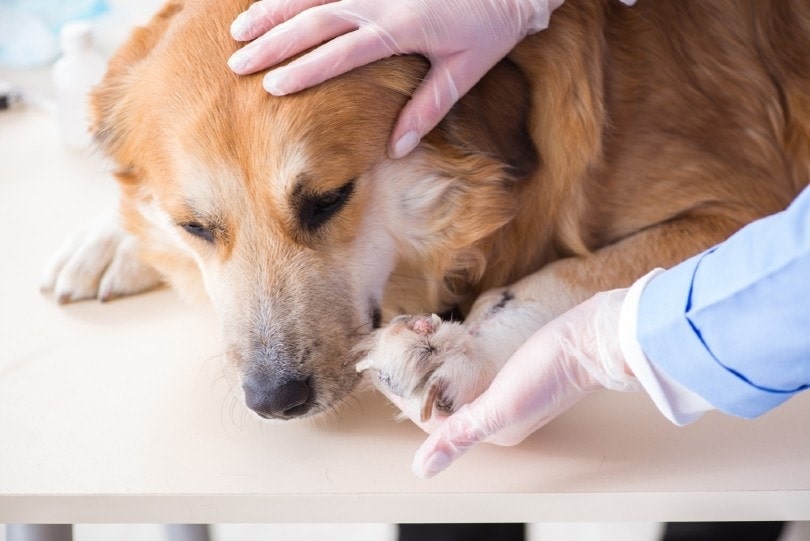
4. Use a Bitter Spray
Many dog owners have luck with bitter-tasting sprays designed to deter dogs from licking. These sprays are safe to use as often as needed. The only problem with these products is that they don’t always stop a determined dog from licking. Some dogs will continue licking regardless of what something tastes like.
Whatever method you decide to try, if your dog is licking their wound, don’t just ignore them or expect them to leave the wound alone. That’s simply not going to happen. As soon as your dog becomes bored, he’ll begin licking the wound just to have something to do. A bored dog can do a lot of harm to a wound in a matter of minutes. That’s why you need to keep your eyes peeled and discourage the licking the best way you can.
- You might also be interested in: Why Does My Dog Lick Metal Objects? Should I Worry?
Featured Image Credit: Wichaiwish, Shutterstock


